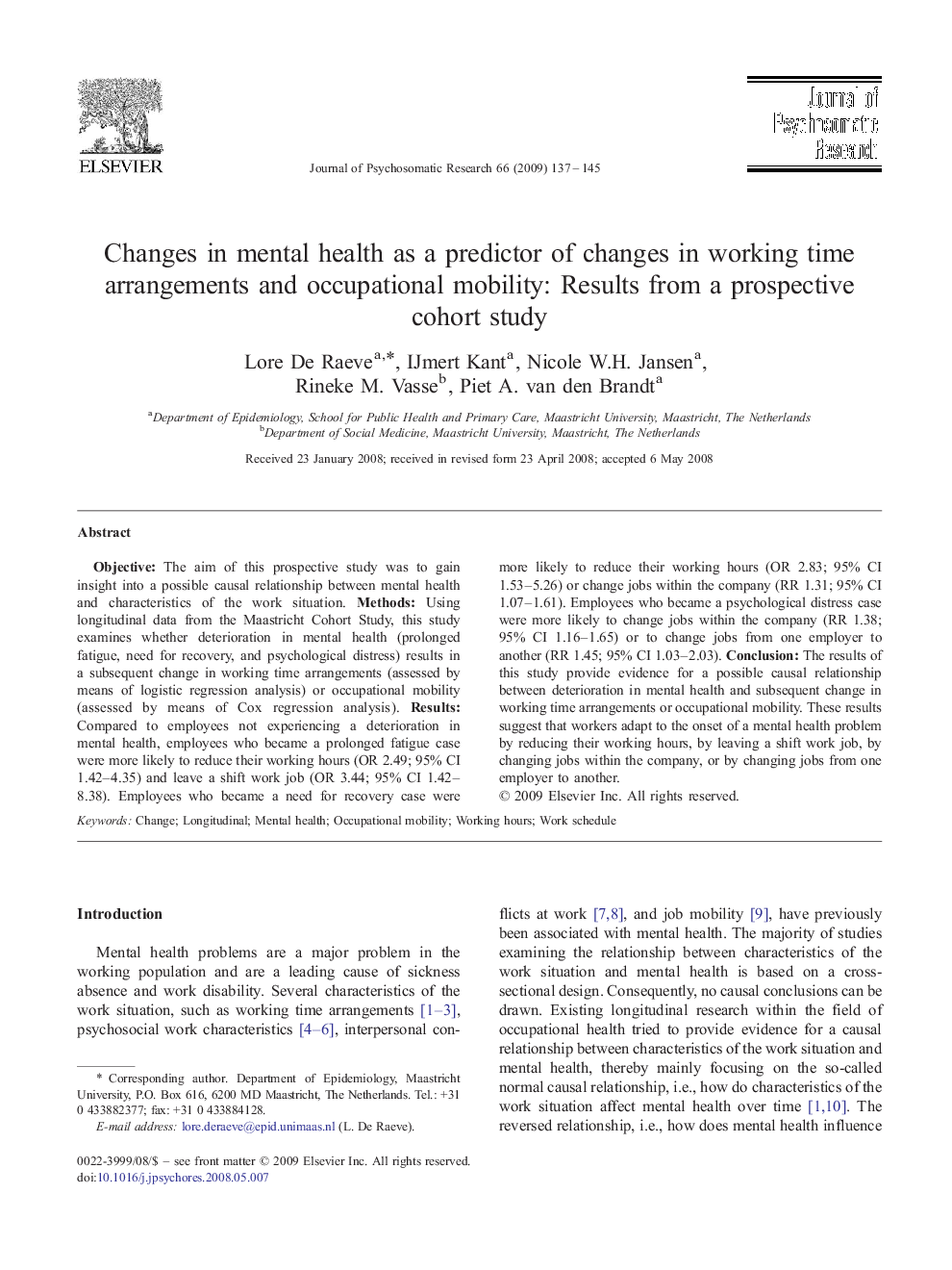| Article ID | Journal | Published Year | Pages | File Type |
|---|---|---|---|---|
| 951009 | Journal of Psychosomatic Research | 2009 | 9 Pages |
ObjectiveThe aim of this prospective study was to gain insight into a possible causal relationship between mental health and characteristics of the work situation.MethodsUsing longitudinal data from the Maastricht Cohort Study, this study examines whether deterioration in mental health (prolonged fatigue, need for recovery, and psychological distress) results in a subsequent change in working time arrangements (assessed by means of logistic regression analysis) or occupational mobility (assessed by means of Cox regression analysis).ResultsCompared to employees not experiencing a deterioration in mental health, employees who became a prolonged fatigue case were more likely to reduce their working hours (OR 2.49; 95% CI 1.42–4.35) and leave a shift work job (OR 3.44; 95% CI 1.42–8.38). Employees who became a need for recovery case were more likely to reduce their working hours (OR 2.83; 95% CI 1.53–5.26) or change jobs within the company (RR 1.31; 95% CI 1.07–1.61). Employees who became a psychological distress case were more likely to change jobs within the company (RR 1.38; 95% CI 1.16–1.65) or to change jobs from one employer to another (RR 1.45; 95% CI 1.03–2.03).ConclusionThe results of this study provide evidence for a possible causal relationship between deterioration in mental health and subsequent change in working time arrangements or occupational mobility. These results suggest that workers adapt to the onset of a mental health problem by reducing their working hours, by leaving a shift work job, by changing jobs within the company, or by changing jobs from one employer to another.
